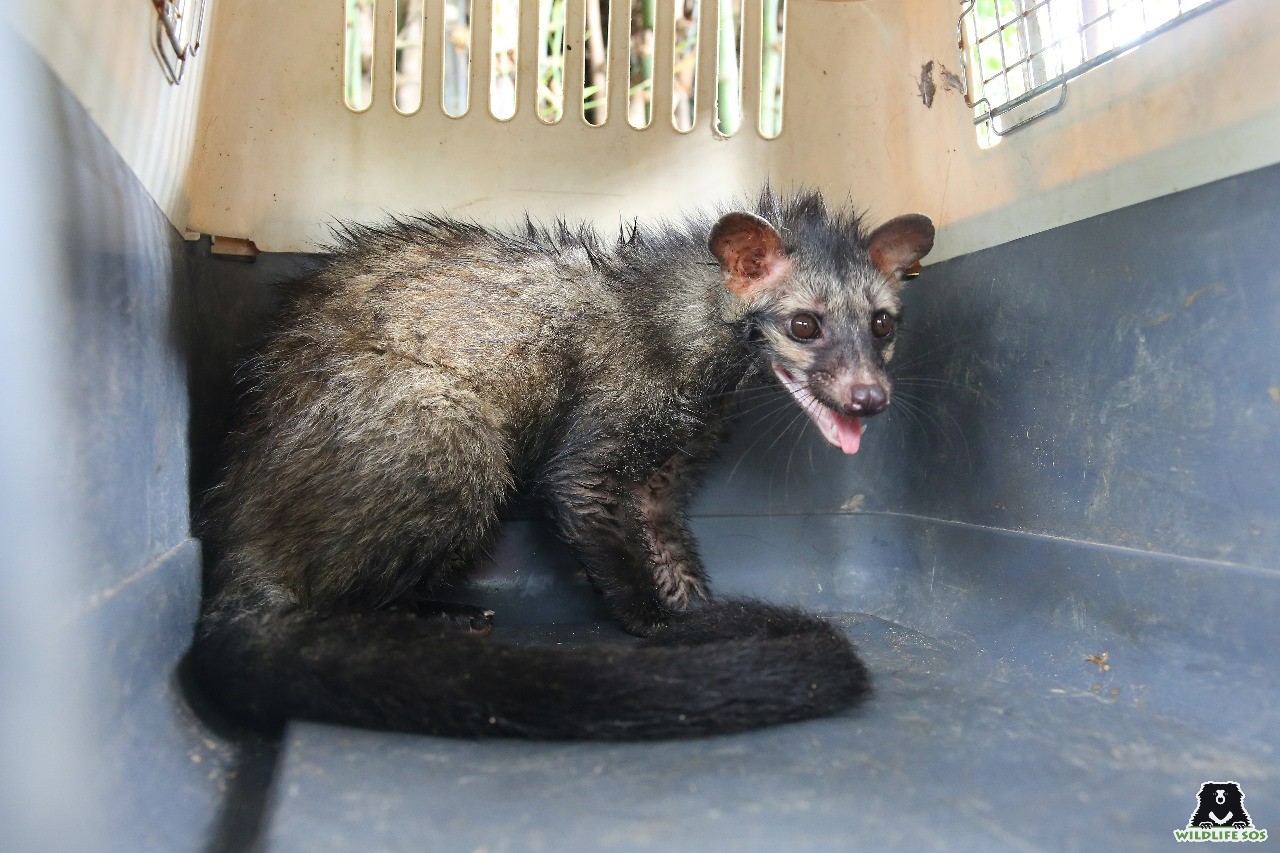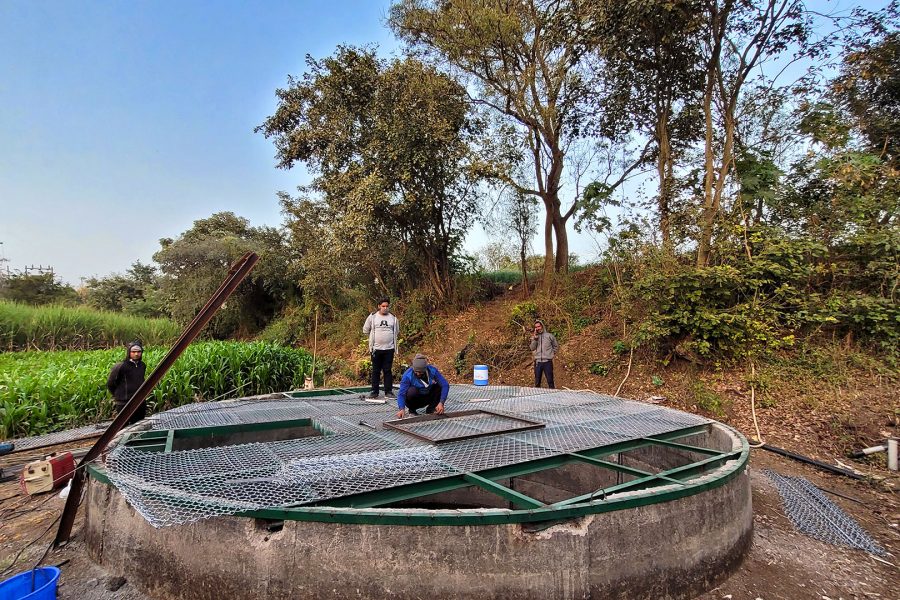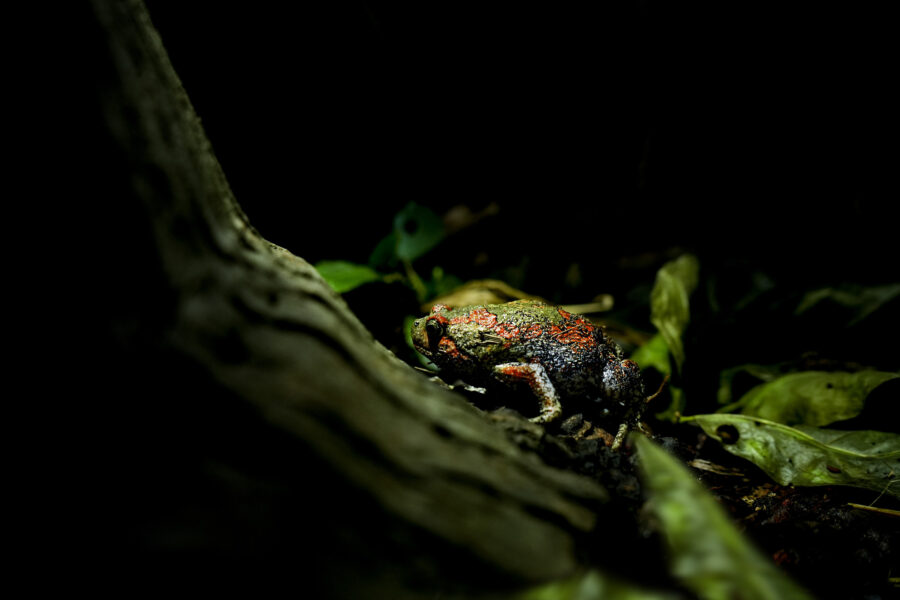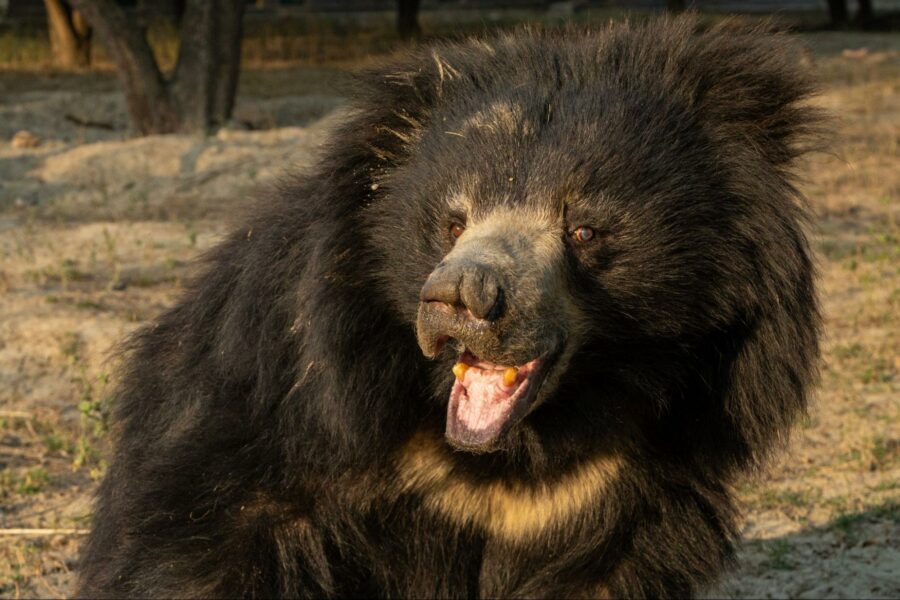Renowned for its historical monuments like the Taj Mahal, the city of Agra also has fascinating stories that deserve attention. Among the numerous wildlife rescue missions that take place, some of the most remarkable ones involve Asian palm civets. These elusive animals often find refuge in the most unexpected locations, leaving our Rapid Response Unit astounded. Despite the unusual settings, our dedicated team ensures the safe and healthy rescue of distressed civet cats. Before we delve into the rescues made, let’s understand why civets are found in difficult scenarios.
The swift expansion of urban areas has been pushing the civet population into unfamiliar cityscapes, making them vulnerable to new dangers. Their habitat is increasingly threatened by encroachment activities, and these small mammals often find themselves in conflict with humans. Additionally, they face the risk of poaching because their glandular secretions are in demand for producing musks and perfumes. Wildlife SOS has been actively involved in the rescue of Asian palm civets from peril. However, some of the situations involved their own share of struggles that both the Rapid Response Unit as well as the agitated civets eventually overcame with success.
The Shoe Factory Oasis
Imagine a busy shoe manufacturing factory, where the noise of machinery fills the air on a hot summer day. Amidst the intense heat, an unexpected visitor seeks refuge in this factory’s sole cutting room. This happens to be a dehydrated and bewildered Asian palm civet, whose presence was met with alarm and chaos among factory employees present there.
Fortunately, the vigilant staff of this shoe factory in Sikandra, located in the suburbs of Agra, was quick to contact the forest department in hope of a timely rescue. As soon as Wildlife SOS received this report, the rescue team headed out to provide respite to the civet that had taken shelter under one of the racks within the factory. With great care, the rack was dismantled, and the civet was safely placed into a suitable transport carrier. Our team ensured the civet’s complete recovery before the animal was released back into its original habitat.
The Plastic Jar Predicament
In a jarring incident, an Asian palm civet found itself in trouble when its head became firmly lodged inside a plastic jar. An occupant of the Agra Air Force Station’s residential quarters was surprised to see the trapped animal outside the door of their house. Concerned for its well-being, the resident immediately informed Wildlife SOS. One of the rescue team members gently extracted the animal from the jar, finally setting it free. The team conducted a thorough evaluation for any potential injuries. The civet was subsequently relocated to a transit facility, where it remained under medical observation for a 24-hour period. Finding the animal to be fit, the civet was then reintroduced to its natural habitat.
The Great Generator Escape
Our next rescue story unfolds at Anand Engineering College in Agra, an unlikely setting for a civet cat’s adventure. The staff of the college made a strange discovery of a civet caught within a power generator. Recognising the need for urgent professional assistance, the college reached out to Wildlife SOS. With great care and precision, the Rapid Response Unit adeptly freed the animal from the confines of the generator. Timely alert and subsequent actions led to successful release of this civet.
Unexpected Airport Alarm
On a regular, busy day at Agra airport, the cleaning personnel stumbled upon a scared and soaked civet inside one of the restrooms. The staff alerted our Rapid Response Unit, which arrived at the venue and rescued the troubled animal within 30 minutes! A complete medical assessment confirmed that the civet was in good health, which led to its safe release in the Soor Sarovar Bird Sanctuary.
Wildlife SOS has often rescued several feliforms, including civets, from challenging situations. Despite being unfairly tainted by its negative reputation, the Asian palm civet is, in truth, a gentle creature. These cat-like animals are typically found in tropical regions of Asia and Africa, and they are highly adaptable, thriving in a variety of habitats. Civets are nocturnal and solitary in nature, making them seldomly seen as they emerge from their burrows only at night to search for food. These omnivorous mammals primarily consume soft fruits, insects, and seeds.
Awareness of the threats they are facing and relaying information to appropriate authorities on time can prevent wildlife from suffering. If you happen to encounter a wild animal in need of urgent assistance, please do not hesitate to contact the nearest forest officials or our 24-hour helpline. Wildlife SOS runs round-the-clock emergency rescue hotlines in four different regions:
Delhi NCR – +91-9871963535
Agra and Mathura, Uttar Pradesh – +91-9917109666
Vadodara, Gujarat – +91-9825011117
Jammu and Kashmir – +91-7006692300, +91-9419778280





